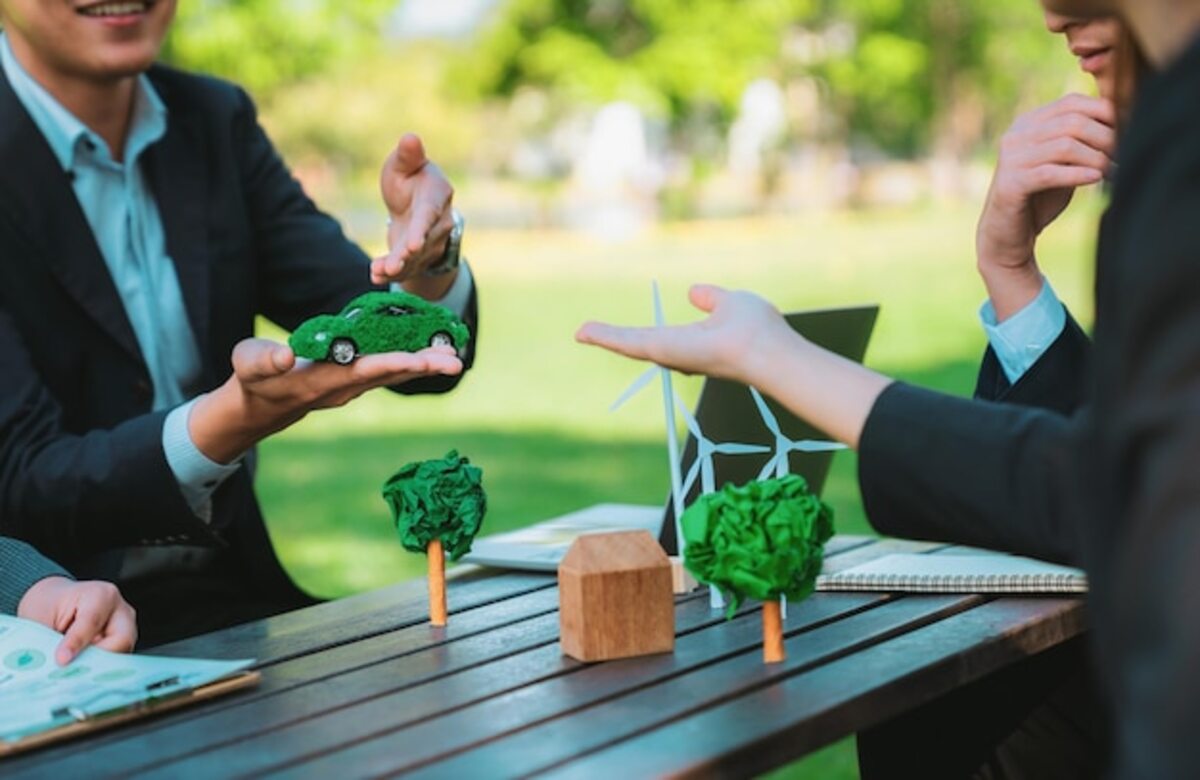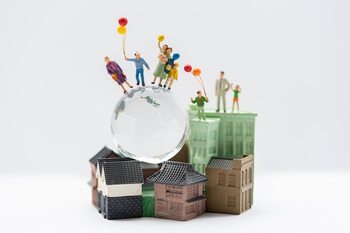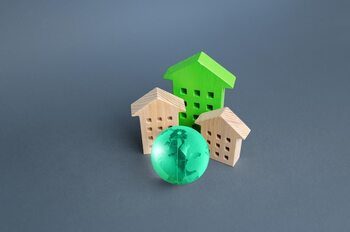How sustainability impacts the value of your property

How sustainability impacts the value of your property is a crucial topic in today's world, where real estate decisions are increasingly influenced by responsible practices. In Costa Rica, the comparison between rural and urban properties reveals how ecological factors affect the appreciation of land. This article will guide you through the elements that make a sustainable property not only good for the planet but also for your investment. Discover how making wise choices can raise the value of your home and contribute to a greener future.
The growing demand for sustainable properties in urban areas
The growing demand for sustainable properties in urban areas reflects a significant shift in the priorities of current buyers. As environmental awareness continues to rise, more people are seeking homes that not only offer comfort and style but also minimize their ecological impact. These properties are often equipped with energy-efficient technologies, rainwater collection systems, and recycled materials, making them attractive options for those looking to reduce their carbon footprint. This interest in sustainability has led to a notable increase in the market value of these properties, positioning them as smart and responsible investments.
Furthermore, government policies and economic incentives are driving this trend towards urban sustainability. Many cities are implementing regulations that encourage green building and offer tax benefits to homeowners who incorporate sustainable practices. This not only improves the quality of the urban environment by promoting cleaner and healthier spaces, but also creates greater demand from those interested in living in communities committed to the environment. In this context, investing in a sustainable property presents itself as a valuable strategy to ensure both the well-being of the planet and the growth of personal wealth.
2. Advantages of rural lifestyle: space and sustainability
The rural lifestyle offers a series of advantages that go beyond the simple enjoyment of the landscape. With larger spaces and a natural environment, rural properties allow owners to enjoy the tranquility and privacy that are often scarce in urban areas. This additional space not only translates into comfort but also allows for the possibility of implementing sustainable practices such as organic gardens, family orchards, and rainwater collection systems. These features are increasingly valued by buyers, which can significantly increase the property value in the market.
Sustainability is an integral part of rural living, where many communities are adopting eco-friendly methods to live in harmony with their environment. By opting for renewable energy solutions, such as solar panels or wind turbines, as well as sustainable agricultural techniques, homeowners can reduce their ecological footprint and foster a deeper connection with nature. This trend towards self-sufficiency and respect for the environment not only enhances quality of life but also elevates the commercial appeal of the property. In a world where consumers are increasingly aware of environmental impact, investing in a sustainable home in a rural area can be a strategic decision that boosts both personal well-being and long-term economic return.
3. How eco-certifications increase property value
Ecological certifications, such as LEED (Leadership in Energy and Environmental Design) or the sustainable construction seal from the Ministry of Environment and Energy of Costa Rica, are internationally recognized as indicators of properties that meet rigorous environmental standards. These certifications not only demonstrate a commitment to sustainability but also ensure greater energy efficiency and a reduction in operating costs for owners. Having these distinctions makes a property more attractive to potential buyers who value energy savings and low environmental impact, which can result in higher demand and, therefore, a significant increase in its value.
Additionally, properties with eco-certifications tend to attract a more environmentally conscious and proactive buyer profile. This group is often willing to pay more for properties that guarantee sustainable practices and resource efficiency. In markets where competition is fierce, having a certified property can be a key differentiator that stands out among other available options. Therefore, investing in improvements that lead to obtaining these certifications not only contributes to the well-being of the planet but also represents an effective strategy for increasing the property's value in the long term.
4. The impact of access to natural resources on rural surplus value
Access to natural resources plays a fundamental role in rural added value, as it directly influences the quality of life of the residents and the sustainability of local economic activities. Properties that have water sources, fertile soils, or proximity to protected areas tend to have higher demand, which translates into a significant increase in their value. These resources not only enable sustainable agricultural and livestock development but also promote ecotourism and other nature-related activities, thus attracting buyers interested in a lifestyle more connected to the environment.
Furthermore, access to these natural resources can be seen as an indicator of the future development potential of a property. Rural areas that preserve their ecosystems and promote sustainable practices tend to attract responsible investments, which in turn increases property value. In this sense, having well-managed land that respects the natural environment not only benefits the current owner but also positions the property as an attractive option for future generations. This aspect highlights how respect for natural resources is closely intertwined with economic and social opportunities within the rural realm, becoming a decisive factor for those seeking responsible real estate investments.
5. Renewable energies and their effect on urban valuation
Renewable energies are transforming the way urban space is valued, becoming a key factor in increasing property value. The installation of solar panels, wind energy systems, and other renewable sources not only reduces long-term energy costs but also improves the overall sustainability of a home. In urban environments, where the demand for eco-friendly solutions is growing, properties that incorporate these technologies tend to be more attractive to environmentally conscious buyers. Thus, a home that utilizes clean energies is presented as a smart and responsible investment.
Additionally, the implementation of renewable energies can be seen as a commitment to community well-being and the fight against climate change. By choosing to live in areas where these sustainable practices prevail, homeowners not only see how their property can increase in economic value over time but also how they contribute to improving air quality and reducing the carbon footprint in their neighborhoods. This holistic approach to urban valuation transforms residential spaces into examples of environmental responsibility, leading more and more people to seek homes that reflect these shared values.
6. Comparison: initial cost vs long-term savings in sustainable properties
The initial cost of a sustainable property may seem higher compared to traditional options due to the investment in green technologies, sustainable materials, and efficient systems. However, it is crucial to consider that this initial investment translates into significant long-term savings. From reduced energy bills thanks to solar panels to the utilization of water resources through rainwater harvesting systems, homeowners can greatly benefit by decreasing their operating expenses. Additionally, many sustainable properties are designed to require less maintenance, which also represents an additional saving over time. On the other hand, the appeal of sustainable properties is constantly growing among environmentally conscious buyers, which can drive their market value. By opting for a home that meets green standards, one not only contributes to the well-being of the planet but also ensures a higher appreciation when selling or renting it out. The trend toward sustainability is shaping the future of the real estate sector; thus, investing in a sustainable property is not only a responsible decision from an environmental perspective but also a smart strategy for maximizing long-term investment.
7. The influence of climate change on the rural and urban real estate market
The influence of climate change on the real estate market, both rural and urban, has become a determining factor in the valuation of properties. As extreme weather conditions become more frequent, buyers and developers are reevaluating their investment decisions. In urban areas, for example, the need for resilient infrastructure that can withstand severe flooding or droughts is leading to an increasing demand for properties that incorporate sustainable solutions. This not only affects the immediate perception of a property's value but also projects its long-term stability in a changing environment.
On the other hand, the rural real estate market faces unique challenges due to climate change. Agricultural and natural lands are increasingly vulnerable to drastic changes in climate, which can impact their productivity and appeal to buyers. However, those rural properties that implement sustainable and adaptive practices are seeing an increase in their value. Consumers are looking for land that is not only productive but also managed responsibly with the environment. Thus, sustainability becomes an essential criterion for assessing the true value of properties in both settings, reinforcing the importance of considering these variables before making a real estate investment.
8. Strategies to increase the value of your property through sustainable practices
To increase the value of your property through sustainable practices, it is essential to implement strategies that not only benefit the environment but also attract a growing number of conscious buyers. One of the most effective actions is the installation of renewable energy systems, such as solar panels. These not only reduce long-term energy costs but also make the property more appealing in a market where energy efficiency is increasingly valued. Additionally, investing in insulation improvements and efficient windows can significantly enhance the comfort of the home and reduce its ecological footprint.
Another key strategy lies in creating sustainable outdoor spaces, such as native gardens or urban orchards. These areas not only beautify the property but also contribute to local biodiversity and can serve as a focal point for buyers interested in a sustainable lifestyle. Additionally, incorporating recycled or local materials in renovations can highlight the commitment to responsible and eco-friendly practices. Together, these strategies not only enhance the visual and functional appeal of the home but also elevate its value in an increasingly competitive and sustainability-oriented real estate market.



